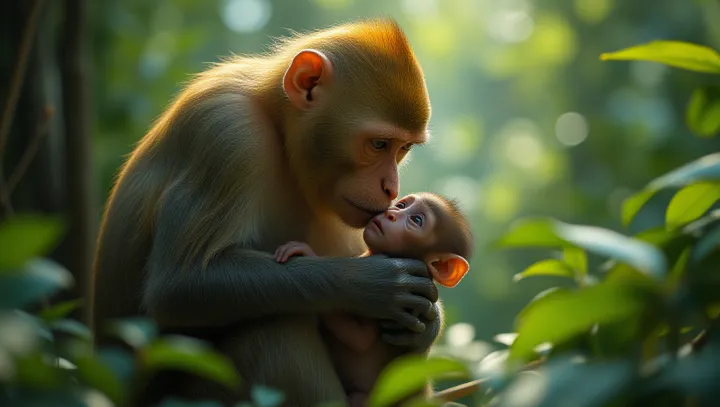Curious Newborns Encounter Natural Wonders

In the lush expanse of Tanzania's Serengeti, newborns, brimming with eagerness to explore, embark on a journey through the natural world. This immense curiosity is not exclusive to humans; it is a shared trait among many species, including our closest relatives, the primates. These young ones gaze upon the vastness with a sense of wonder that is both profound and instinctual.
Recent studies conducted by leading researchers have shown that newborns, particularly in primate species, are innately curious about their surroundings. This curiosity is often matched by their mothers' instinctive desire to nurture and protect. In this delicate dance of exploration and care, maternal instincts play a crucial role in the developmental stages of these newborns, guiding them through their earliest interactions with the world.
The phenomenon has been observed most notably in monkeys, where the maternal bond is visibly strong. As mothers cradle their young, they facilitate an environment where curiosity can thrive. This relationship is not just about survival; it is about fostering a connection with the environment that is essential for growth and adaptation.
Experts suggest this nurturing behavior and newborn curiosity contribute significantly to the social structures seen in mature animal groups. This foundational stage of life enables young animals to develop skills necessary for thriving in complex ecosystems, highlighting the importance of maternal care and environmental interaction in early development. The intersection of curiosity and maternal love is a universal theme, resonating through the halls of nature's many organisms.
As we observe, we find that nurturing new life derives not just from a biological necessity but from an intrinsic connection to the environment, an interwoven dance of existence that spans generations.
